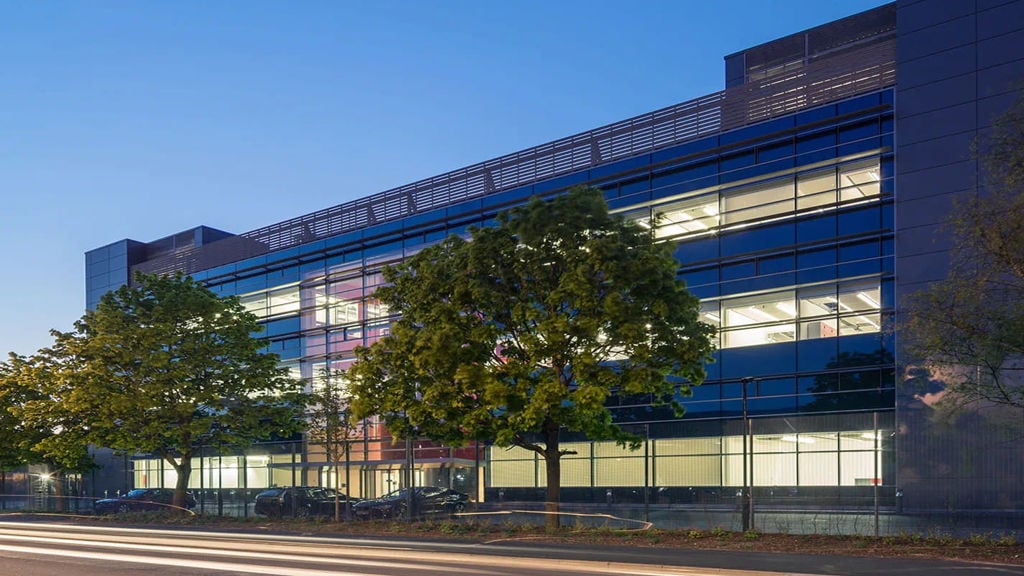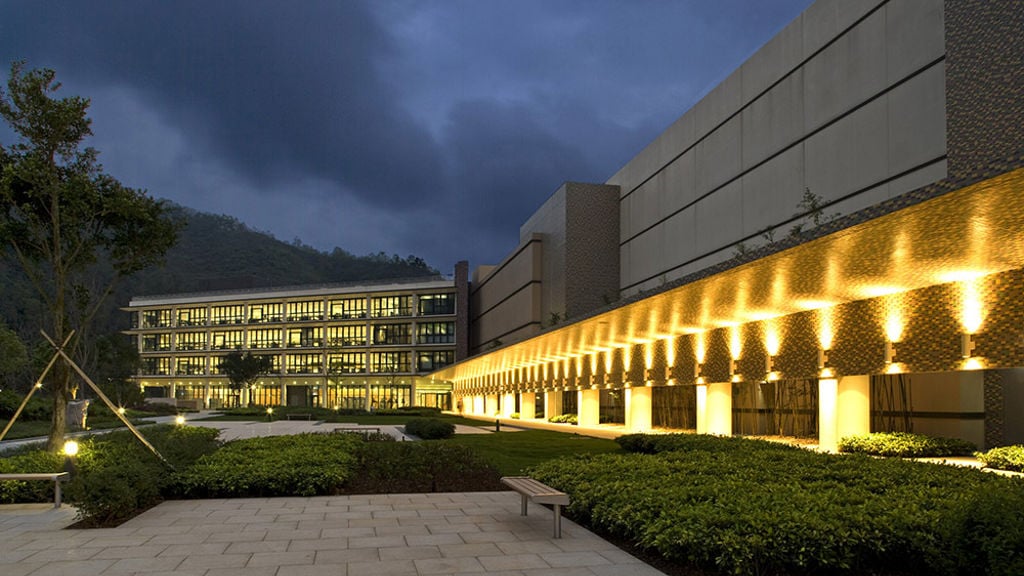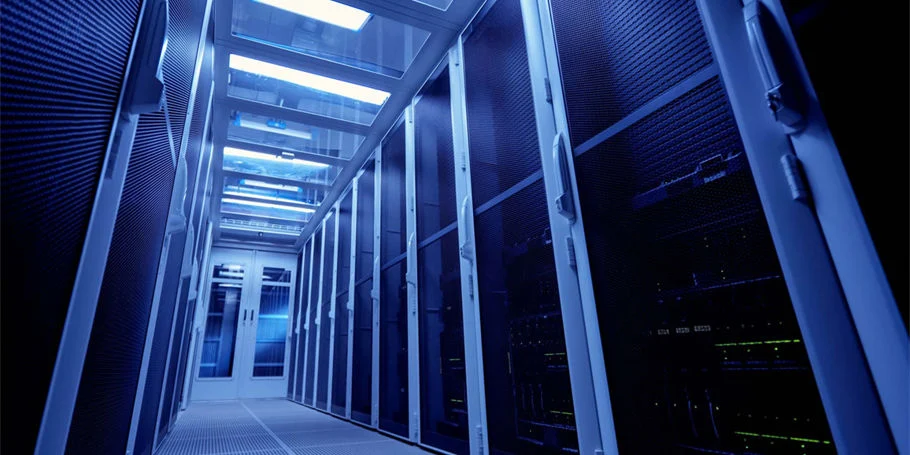Sustainable and resilient data centre design: the world's first LEED Platinum certified data centre
Citigroup Data Center

The Citigroup Data Center in Frankfurt am Main was the company's largest data center outside the US when it opened in 2012. Being a pilot for sustainable data center design at its time, the project was the first data centre ever certified LEED Platinum.
Citigroup appointed Arup to design and deliver the project, including consulting on the site selection in Europe, general planning, LEED certification, contract management, site supervision and commissioning.
In 2012, this data center was engineered to consume 30% - 50% less energy than market standard and reduces water consumption through an innovative recycling strategy. The site features 80% green roofs, Europe’s largest green façade at the time, and a landscape designed to retain rainwater and provide habitat for 73 trees.
Engineering sustainable, energy-efficient data centers is the next design frontier for built environment consultants worldwide. This project demonstrates how to design a large-scale yet sustainable data center without compromising its operations and reliability.
Sustainable data centre design: a new architectural language
Arup’s multi-disciplinary approach was central to the seamless adoption of an integrated sustainability strategy. Our engineers calculated energy use at initiation of the design process, which informed the building orientation, spatial configuration, and mechanical systems; and has generated cladding and façade shading systems that respond to solar orientation.
The architectural design is aligned with this: despite its functional geometry, Arup created a modern, human-friendly data centre featuring a high-tech workplace with large open spaces, landscaped gardens and an iconic green wall.
The offices feature natural day lighting and ventilation via glazed façades, with external timber louvres made of white oak, designed to contrast with the metallic external façade of the technical facility. The functional and aesthetic aspects as well as their CO2 balance and later reusability played a decisive role in the selection of all materials. Disguising the full volume of the data hall, the iconic green wall featured indigenous plants and was fully irrigated by harvested rainwater. The wall, measuring some 55m by 12m high, complemented the extensive green roof and helped maintain a constant building temperature throughout the year while reducing thermal gain in the summer months.

We designed a modern data center with open spaces, landscaped gardens and a striking green wall
Resilient, energy-efficient infrastructure design
The data centre meets the highest requirements in terms of supply security. The innovative and consistently planned technical infrastructure for secure and economical operation enabled a “quantum leap” in the energy efficiency of data centers in 2012 and, with a PUE (power usage effectiveness) value of < 1.2, is still one of the most efficient data centers in the world today. We designed the data centre hall partitions precast as concrete wall panels with predefined and co-ordinated services penetrations, providing additional security while contributing to the hall’s thermal inertia.
Innovative problem-solving with state-of-the-art tools
Working closely with the client, we developed an innovative concept for a safer, more economical supply, a cooling system that does more than 70% without chillers and a reverse osmosis concept for recycling cooling tower water that makes the use of chemicals almost superfluous and reduces water consumption by 30%.
To validate our own planning variants, we used tools such as CFD (Computer Fluid Dynamics) air flow modelling and failure probability simulations to guide the decision-making process together with the client, enabling the development of groundbreaking solutions. Our solutions were developed in the interaction of architecture, building physics and technical building equipment and are characterized by particularly high quality, sustainability and cost-effectiveness.
From "Go for Gold" to "Platinum“
Sustainability has always been a central aspect of our planning. The goal of LEED Gold certification was ultimately exceeded with the world's first platinum certification of a data center. In Germany, the Citibank Data Center was the first building ever to receive LEED certification.
Following the commissioning of the data centre, Arup has remained closely associated as a partner for all subsequent conversion and expansion measures, supporting Citigroup with energy monitoring and operational optimization.
Working with Citigroup, Arup has succeeded in creating an innovative and high-quality design. When completed, Citigroup's new European data centre will be a global example of energy efficiency and sustainability.
Bernd Günnewig
Project Manager Citigroup Germany
What we delivered
-
Developed a leading example of sustainable data centre design
-
The first data centre to achieve LEED Platinum certification
-
Remains one of the most efficient data centres in the world with a Power Usage Effectiveness (PUE) of < 1.2
Get in touch with our team
Projects
Explore more data centre projects

European fibre optic networks: buyside due diligence smooths stake acquisition
Telecom buyside Technical Due Diligence, Netherlands

An evolution of Arup-designed LD4 and LD5 facilities in Slough
Equinix, London Data Centre 6, UK

The largest data centre in Asia meeting the design requirements of Tier IV standard
HSBC Data Centre Hong Kong, Hong Kong

Delivering a BREEAM rated data centre for Amsterdam
AMS15 Data Centre, Netherlands
Get in touch with us
If you'd like to speak to one of our data centre experts about any of the issues raised on this page or a potential collaboration then please get in touch by completing the form.

